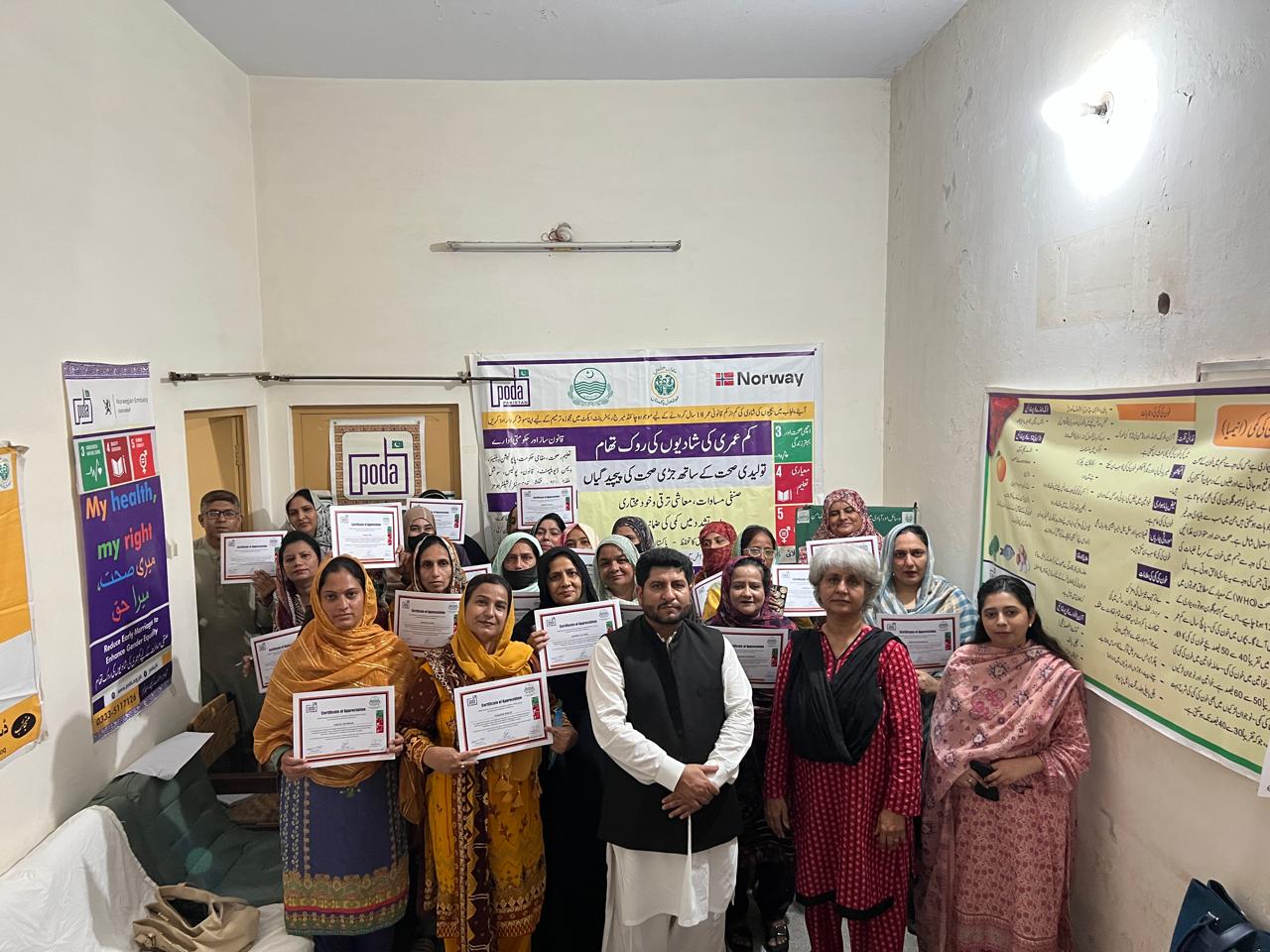GUJRAT -UNS: PODA, in collaboration with the District Population Office, Gujrat, conducted a workshop on reproductive health, menstrual hygiene management, and urinary tract infections for the staff of over 20 basic health units of the district at the seminar hall of the Family Health Clinic. The activity is part of the project Reduce Early Marriages to Enhance Gender Equality, supported by the Norwegian Embassy in Islamabad from December 2022 to November 2025.
Presenting a detailed introduction of PODA’s work focused on rural women, youth, and vulnerable segments of society, Nabeela Aslam said that the reproductive health of women is closely linked to menstrual hygiene management. Spotlighting anemia as a major health issue among women, she urged the participants representing over 20 BHUs to address it through improved nutrition.
The participants highlighted that child marriages are prevalent among the migrated population that has been residing in the district for several years. A majority of participants themselves had hemoglobin levels below the recommended rate set by WHO, i.e., 12.
Umer Farooq, District Population Welfare Officer, emphasized building alliances and collaborations to achieve SDGs 3, 4, and 5 related to women’s health, education, and equal opportunities. “Women’s effective role in spreading awareness through all available channels regarding reproductive well-being and rights guarantees a visible and significant presence of women’s health needs and solutions on the front,” Umer Farooq said.
The participants unanimously expressed their concerns, including the high rate of maternal and infant mortality, excessive bleeding, and sudden rise in blood pressure among young pregnant child mothers—issues directly associated with the incidence of child marriages. Appreciating the leadership of Chief Minister Punjab Mariam Nawaz, they underscored the urgent need to amend the current Punjab Child Marriage Restraint Act, aligning it with the ICT Child Marriage Restraint Act passed a couple of months ago, to ensure the minimum age of marriage for both girls and boys is 18 years, with a National Identity Card as a mandatory requirement.
In the end, certificates were awarded to the participants who showed commitment to making their communities aware of the risks associated with child marriages, in order to protect the rights of women and girls in line with Articles 25 and 34 of the Constitution of Pakistan.




